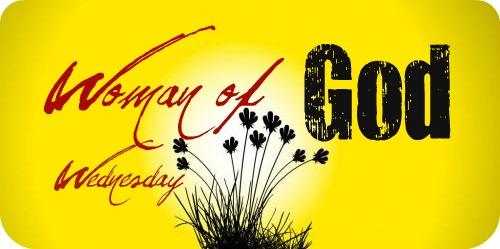
Scripture References: 1 Samuel 1; 2
When They Lived: About 1125 B.C.
Name: Hannah [HAN-nuh: grace"]
Historical Significances: Hannah became the mother of Samuel, Israel's last judge. Hannah's desperate prayer at the tabernacle led to the birth of her son, whom she brought before Eli, the priest.
Fifteen judges ruled the people of Israel during a period of four hundred and fifty years; that is, from the death of Joshua, till Saul was chosen as their first king. Samuel was the last of these judges; and he was a priest and a great prophet, as well as a ruler of the people. His father and mother were Elkanah and Hannah. They were very good people, and year by year went up from the place where they lived to Shiloh, where the Tabernacle had been set up, to worship and offer sacrfice to God.
All the Israelites were obliged to do after they were settled in the promise land. Hannah had no children; and as she was grieved that she had none, she prayed to God, when worshiping at Shiloh, to give her a son, promising that if He would, she would dedicate him (that is, give him up) to the Lord God, in the service of the Tabernacle, from his childhood. God granted her request; and when the child was born she called him Samuel (which means "Asked of God"), because he had been given to her in answer to her prayer.'
The first time after his birth that Elkanah and his family went up, to worship at Shiloh, Hannah did not go with them. She told her husband she would not do to so till Samuel was weaned, and then she would take him with her, and leave him with the priests, who might train him to serve God in the Tabernacle. Elkanah bade her do as she thought best in the matter. So when Samuel was weaned, she took him with her to Shiloh. And when she had offered sacrifice to God, she told Eli the high-priest, who was also at that time judge in Israel, that she was the woman whom some time before he had seen praying in the Temple (as the Tabernacle was also called), and that Samuel was the child she had prayed for. And now, she had promised, she has come to give him to God, that he might be His priest.
Then, when Eli had given his blessing to Hannah and her husband, they returned home, leaving Samuel with him. And the child served in the ministry of the Temple, clad in a white linen garment that the priests wore. It was called an ephod. And every year that his mother came up to worship at Shiloh, she brought him a little coat, that she had herself made for him.
And as Samuel grew, God blessed him; and Eli, who was very old d nearly blind, was fond of this good little child whom everybody loved because he was good.
A CLOSE-UP
Hannah was a woman who for a long time could not enjoy her blessings. Her heart was so focused on having a son that nothing else seemed to matter. But life changed or Hannah when she surrendered the thing she wanted most to the Lord in a vow.
Hannah discovered a truth that Christ would teach to His disciples a millenium later. in Matthew 16 Jesus urged his disciples to deny themselves, to take up their cross, and follow Him. What, Jesus asked, can "a man give in exchange for his soul?" (Matthew 16:26). The Greek phrase in our New Testament reflects a Hebrew grammatical construction in which the nephesh, "soul", serves as a reflexive pronoun. What Jesus was actually asking is, what can a person give in exchange for his or her self?
The disciples had a a choice to make. They could hang on to the old self or they could surrender all to Jesus and by following Him become the new persons God would enable them to become. I surrender, the disciples would discover not loss, but gain--as Hannah similarly discovered so long ago.
In surrendering to God the sonshe so desperately wanted, Hannah gained a fresh appreciation for the Lord, a deep sense of joy, and a truly satisfying life. She gained for sure knowledge that in surrendering Samuel to the Lord, she had set him on course to become one of the Old Testament's great men of faith.
EXAMPLES FOR TODAY
1. Hannah's life portrays how setting our hearts on something we do not have can rob us of appreciation for the gifts God has given us. It was only when Hannah surrendered the object of her desire to God that she found release from her anguish and discovered peace.
2. Hannah's prayer reminds us that when our motivation is right, God is more likely to say yes to our petitions.
Is there anything hard for you to surrender to God today? The joy Hannah found in surrendering to God what was most important to her can be ours when we surrender all to Him. Talk to Him, He is waiting for you.

Have a lovely evening, everyone!
Agape
xoxo



No comments:
Post a Comment